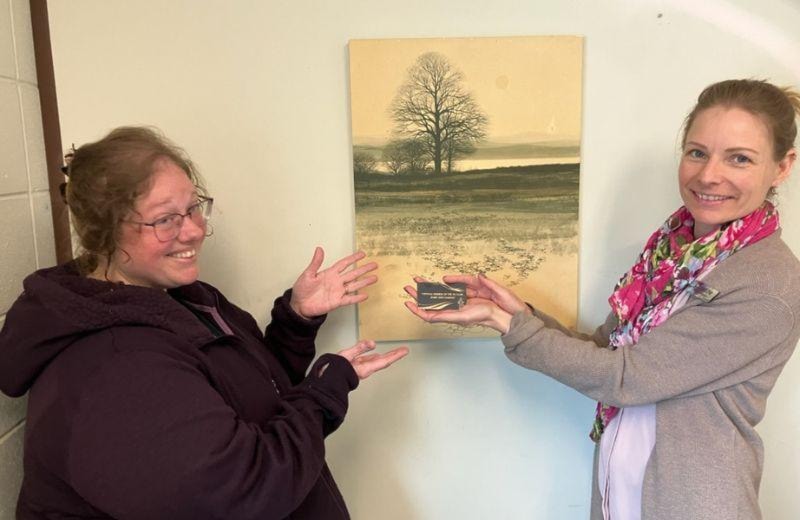3% Club is built on idea that little bits of exercise can snowball into major change
A Terrace doctor is encouraging people to take the stairs—and in doing so, to join what he calls the “3% Club.”
The program, led by Northern Health clinical exercise physiologist Darren Scherbain with support from registered dietitian Christine Geier, is based in Terrace but is open to patients across the region through referral from primary care providers. Scherbain said the name comes from a 2018 study suggesting that only 3 per cent of able-bodied people in the study chose stairs over elevators.
“In my practice, I am using exercise as a primary intervention in over 36 chronic diseases,” Scherbain said in a Northern Health press release. “The approach that I take is I don’t look at what’s going on with a comorbidity. I don’t treat the disease. I want to treat the person. I get to know the person. Once you can garner somebody’s trust then we can start the collaborative approach of what are we going to do for your clinical care.”
The initiative uses small actions, such as stair-climbing, as cues to encourage broader lifestyle changes. Scherbain pointed to research showing that “even as little as nine minutes a day can see a 7% increase in how much oxygen the whole body is able to use and deliver so that we can go through our day-to-day activities.”
Members of the 3% Club receive personalized health plans, check-ins, and access to workshops and activities including fitness classes, nutrition workshops, and mental health support groups. They also receive a membership card and opportunities to connect with others facing similar challenges.
The program is connected to Change BC, a province-wide initiative that uses goal-setting, reinforcement, and progress tracking to encourage behavioural change. Participants in the 3% Club work with Scherbain and Geier for a year, beginning with weekly sessions for three months before moving to monthly sessions for nine months. Family physicians provide blood work and lab results to support care.
“What we’re looking at doing is taking evidence-based research and reversing metabolic syndrome,” Scherbain said.
Metabolic Syndrome Canada describes the condition as a cluster of risk factors—including high blood pressure, abdominal obesity, high blood sugar, high triglycerides, and low HDL cholesterol—that raise the risk of heart disease, diabetes, stroke, and other health problems.
Patients in the program have shared success stories, from overcoming anxiety to returning to mountain hiking. Scherbain said that even modest steps can be transformative.
“What we’re also starting to see is that this little step of climbing the stairs creates a domino effect for people being more physically active for setting goals,” he said.
The program also includes group activities, such as a weekly dance session, and community challenges like the upcoming “Brandy Challenge,” in which patients and supporters will climb Terrace Mountain.
“We’re just celebrating people’s goals,” Scherbain said. “It might seem like a small victory to some, but to us it’s huge. They’re huge, huge victories.”

